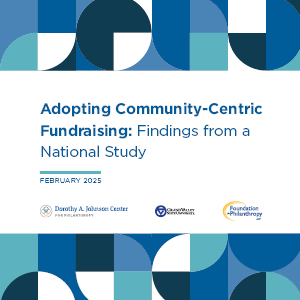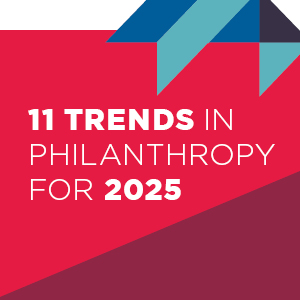Philanthropy and Government Play Increasingly Overlapping Roles in the Public Sphere
This piece from 11 Trends in Philanthropy for 2021 raises questions about what roles each sector should play in addressing longstanding challenges.


















This piece from 11 Trends in Philanthropy for 2021 raises questions about what roles each sector should play in addressing longstanding challenges.
Jeff Williams explains how traditional donor, nonprofit, and foundation practices are often rooted in misconceptions about the scale and breadth of the sector, leaving many nonprofits out to dry when it comes to grant eligibility.
This Thanksgiving, Michael Moody explores the connections between gratitude and giving, and how gratitude often fuels philanthropy.
Children are natural philanthropists. They’re creative thinkers and empathetic friends. But to truly engage them, and to change philanthropy for the better, we need to move beyond lemonade stands and canned goods drives.
Recognizing that adjusting the mechanics of the work alone is not enough, two organizations working toward greater trust and transparency in philanthropy discuss the levers and tools they’re testing to effect change.
This article details how two organizations — one in the U.S. and one in the U.K. — are working to radically transform philanthropy as we know it by calling for more trusting, power-aware relationships between foundations and nonprofits.
Philanthropy’s next generation is reconfiguring the donor landscape, upending norms in nonprofit organizational practice, and blurring sector boundaries.
Noting the surprising lack of attention from the philanthropic sector to the student debt crisis, Tory Martin calls for action to help millions of families burdened by student loan debt recover their capacity for education-driven wealth generation.
This essay highlights the multifaceted ways racism influences philanthropy from the perspective of a Black woman scholar who founded a donor-advised fund targeting Black women and girls.
Many funders are attempting to “decolonize” their wealth and hand over more control to those receiving that wealth. But as movements and funding streams formalize, organizations may experience pressure to tone down or redirect their aims.